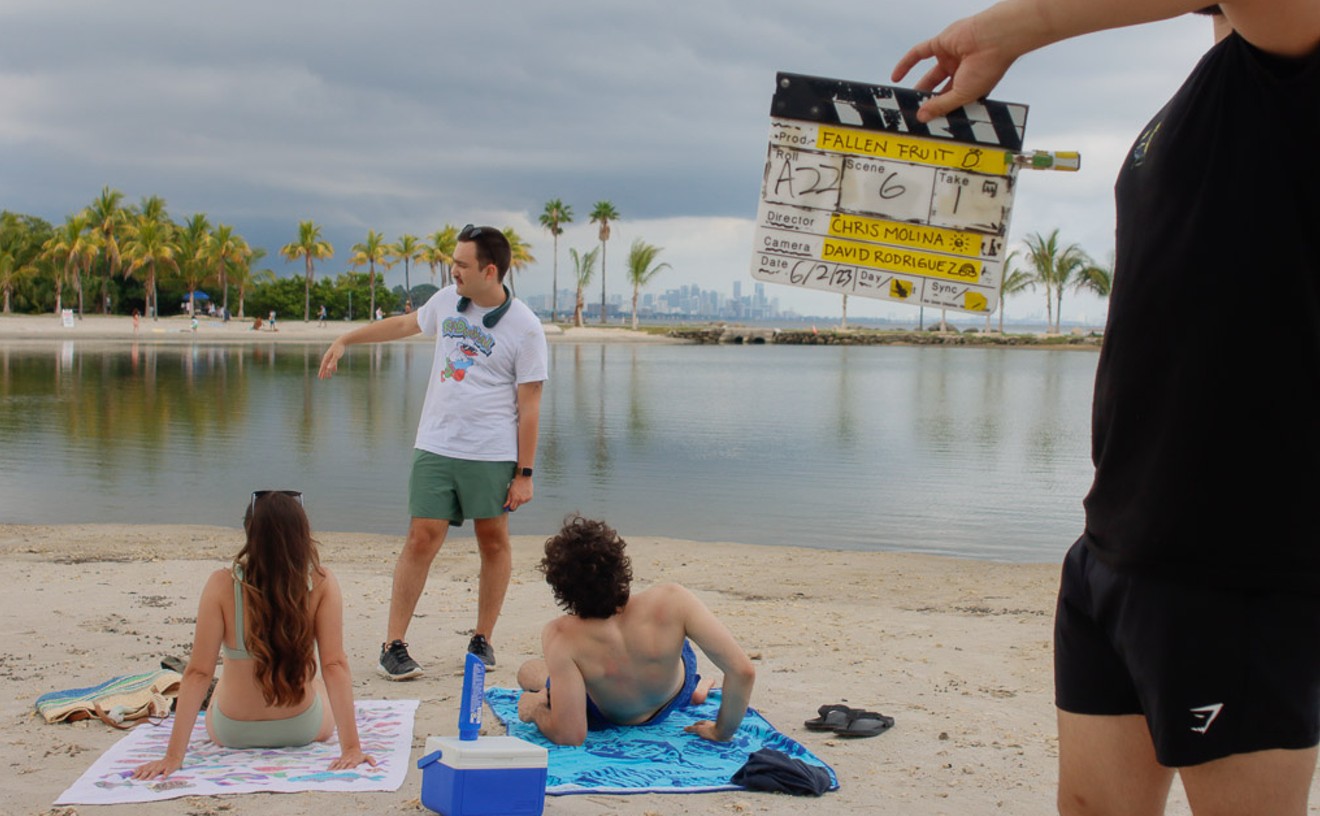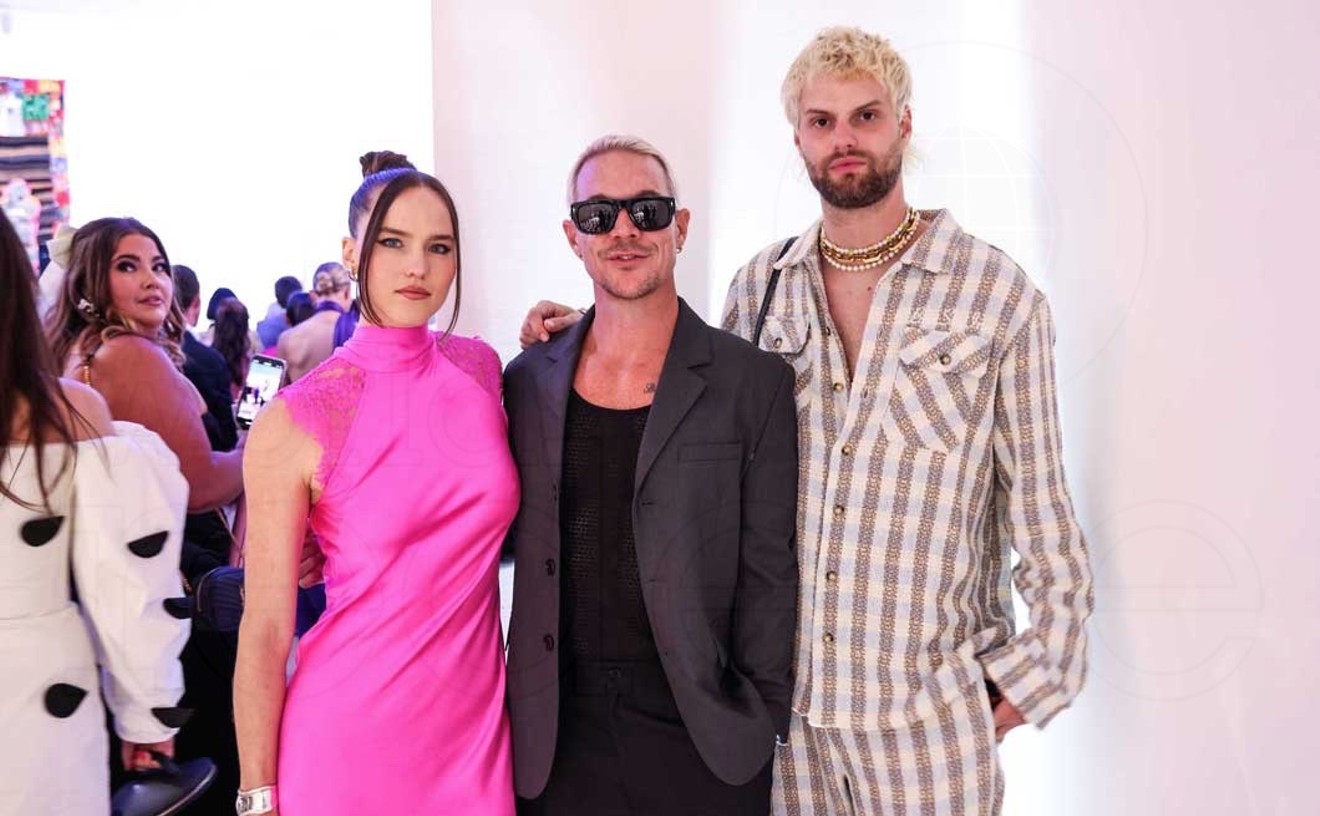Few photographers captured the toil and turmoil of everyday survival that Parisians faced in the aftermath of World War II like Willy Ronis.
A contemporary of Henri Cartier-Bresson and Robert Doisneau, Ronis created images that helped define life in postwar France and were often quite controversial. As a reconstructing France struggled to project stability, Ronis's pictures of common street life instead showed working-class people in a country humbled by poverty and wracked by social unrest.
Ronis's work, on display in a retrospective at the Dina Mitrani Gallery (2620 NW Second Ave., Miami; 786-486-7248; dinamitranigallery.com), is one of a number of shows worth catching at this weekend's Second Saturday Art Walk, the district's final warmup before Art Basel Miami Beach roars into town. Most of the Wynwood galleries are raising the curtain on their Basel blockbusters early, so it's the perfect weekend to catch some local shows that might get lost amid the impenetrable clamor of the international art circus that will parachute into the 305 during the first week of December.
For lovers of classical black-and-white photography, Mitrani's show, "Willy Ronis: Paris," is a can't miss. On view are images of a couple embracing under a bridge along the river Seine and, in the strikingly joyous Le Petit Parisien (1952), a young boy wearing shorts and a vest as he skips giggling along a street while lugging a baguette almost his size.
"Ronis was the first French photographer to work for Life magazine and was included in the Museum of Modern Art's 'Family of Man' exhibition in 1957," says Dina Mitrani, the gallery's owner.
Mitrani, who is collaborating with Peter Fetterman, a Santa Monica, California gallery owner, calls this exhibit "a dream come true."
"I want to share with the Miami community the significance and lasting impact these photographs have had on our cultural history," says Mitrani, who will display 25 of Ronis's pictures during the art walk.
Another Wynwood space hoping to snag collectors in the calm before the Basel storm is the Black Square Gallery (2248 NW First Pl., Miami; 305-576-0081; blacksquaregallery.com), which will feature a stunning suite of color photos by Argentine talent Pablo Lehmann. Lehmann's show, titled "Scribe's House," premieres his new text-based series, in which the artist engulfs entire rooms with intricately cut-out words from books, textiles, and plastics.
"The photos are actually photographed installations. One of them in is currently in NYC now at Rockefeller Center, which we'll bring to Miami for Art Basel," says Anna Milashevych, the gallery's director.
At Black Square, large-scale images depict rooms in Lehmann's Buenos Aires home completely covered with layers upon layers of textile-like pages of language across every inch of every surface.
The project marks a departure for Lehmann, who has most recently exhibited drape-like wall sculptures of deconstructed language, weaving words hijacked from original sources into conceptual tapestries.
In this show, instead, he has festooned bathrooms, bedrooms, dining rooms, and studies with the remnants of letters in a process that often takes several months. After photographing the results of his meticulously constructed environments, he destroys the original hand-crafted creations before finally digitally altering his rooms to convey spaces fully conceived from literature.
"All the installations are real-size rooms — they are not shoe-box-size scales — and they were made in the artist's apartment in Buenos Aires before being photographed," Milashevych explains.
In a world where books could become obsolete and language is mangled or reduced to Twitter's 140 characters, Lehmann's three-dimensional play on words is a reminder that language remains key to intellectual analysis, face-to-face communication, and the sheer pleasure of reading.
Among the highest-profile openings this weekend are a pair of exhibits at Locust Projects (3852 N. Miami Ave., Miami; 305-576-8570; locustprojects.org) combining solos by Miami's Jacin Giordano and Chicago-based artist Theaster Gates, who recently made big news at Documenta (13) in Kassel, Germany, with his critically acclaimed installation 12 Ballads for Huguenot House.
At Locust, Gates is launching "Soul Manufacturing Corporation," the first gallery exhibit of his multidisciplinary opus. It will feature a fully functioning "factory" with four pavilions, where "skilled makers" will produce objects and pottery during the exhibit's duration. Gates's show will also host programs by a yoga instructor, a DJ, and a reader assembled as part of the project to "care for" the workers and audience.
The artist was inspired by lectors who read news and literature to illiterate workers during the industrial era, and says his project is an exploration of the relationships among labor, race, and aesthetics.
In the gallery's Project Room, meanwhile, Giordano's "Wound, Bound, Tied and Knotted" presents a new series of works in which the artist employs tree branches as the stretchers for his paintings. Their organic nature dramatizes the web of rainbow-hued yarn he wraps around the stems to create the surfaces he paints upon.
This marks Giordano's first installation project integrating both painting and sculpture into a space's architecture and is inspired by a wide range of sources.
Extensively covered in multiple coats of acrylic paint and dye, his works starkly jut from the walls and reference everything from process-based painting, folk and self-taught fiber arts, and natural history.










